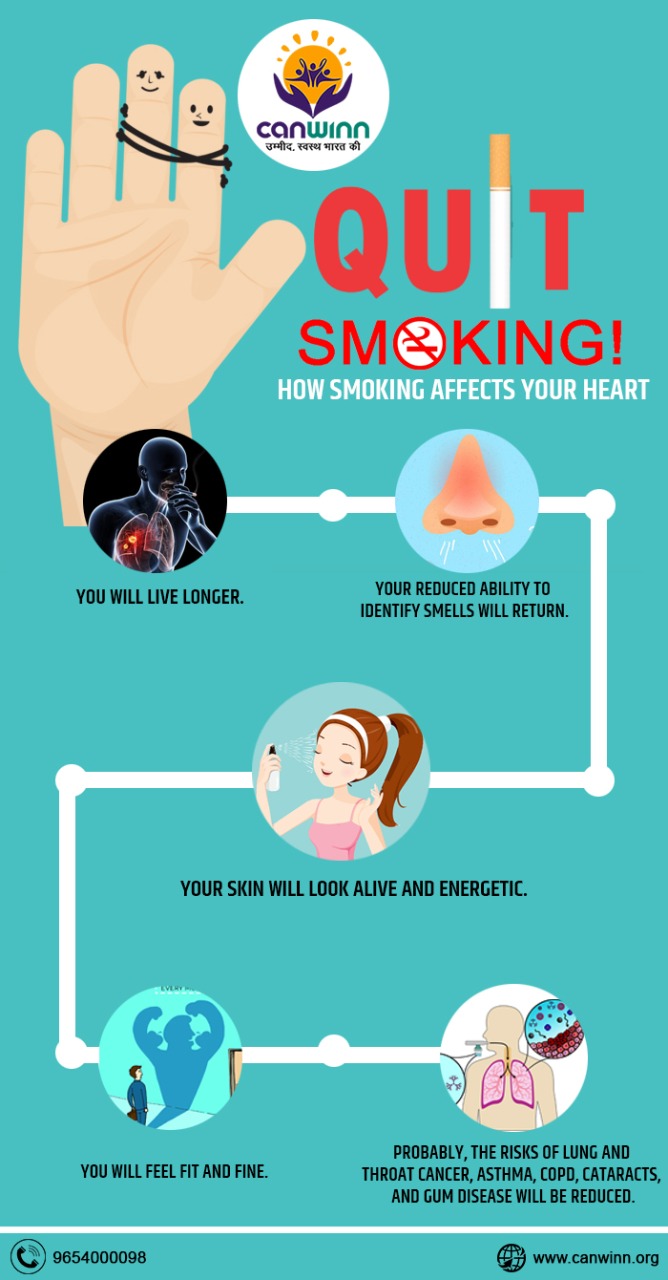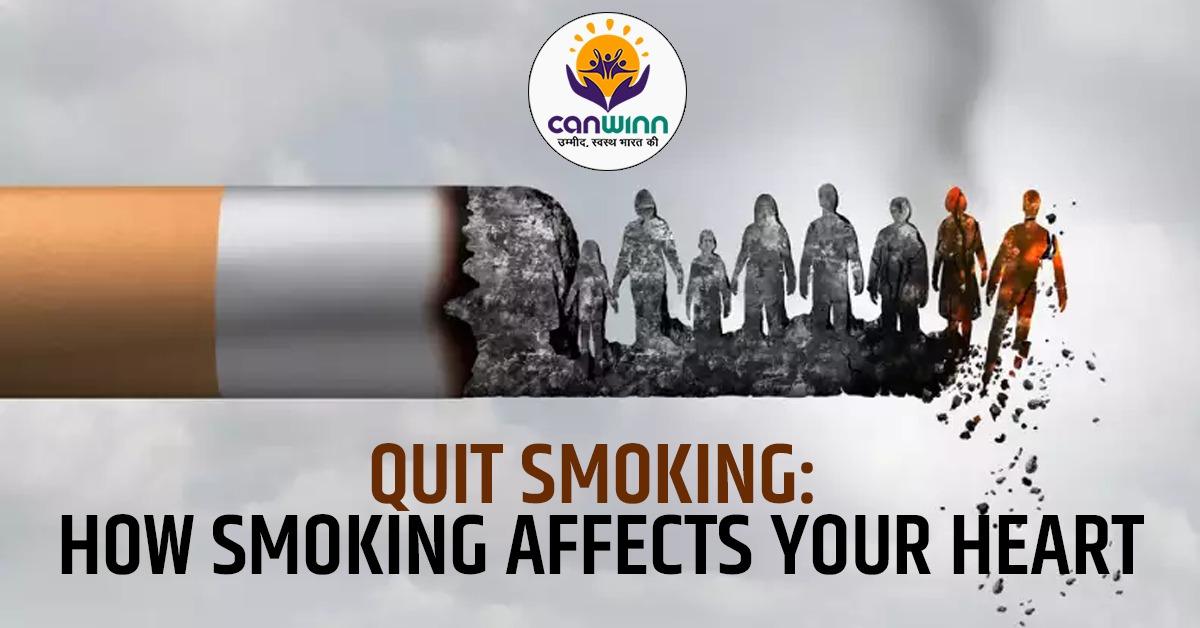Smoking is injurious to health who doesn’t know this fact but some people still don’t care about it and keep on smoking cigarettes. Smoking can cause cancer however, it also increases the risk of developing cardiovascular diseases. If you want to know How Smoking affects Your Heart, keep on reading. If you are a smoker, you should quit smoking today. Increased risks of cardiovascular disease are the result of smoking tobacco.
How Does Smoking Cause Heart Disease?
Smoking enhances the chances of heart disease and it is more hazardous for women than men. Therefore, the effects of smoking including heart attacks are six times higher in women and three times in men.
Nicotine along with other chemicals and compounds like tar and carbon monoxide is dangerous for your heart. Over time, these harmful substances trigger the accumulation of fatty plaque in the arteries. This hardening of arteries is known as atherosclerosis.
How Does Smoking Worsen Atherosclerosis?
Many factors are responsible for worsening this heart condition of hardened blood vessels:
- Prolonged smoking raises bad cholesterol (LDL) while reduces the good cholesterol level.
- The products like cigarettes are packed with lots of toxic chemicals that create harmful conditions. Therefore, smoking probably injures blood vessel walls and causes inflammation.
- Also, smoking boosts adrenaline levels. And eventually, inflates cardiac stress and blood pressure.
- It can enhance the risk of blood clots within blood vessels.
Similarly, smoking has a tendency to affect the cardiovascular system in many ways.
Smoking Effects on the Heart:
- Smoking provokes an increase in heart rate.
- It doubles the serum homocysteine levels. And eventually, increased serum homocysteine levels can lead to vascular injury.
- Smoking reduces the blood’s potential to deliver oxygen to the tissues.
What Are the Risks of Secondhand Smoke?
According to the studies, secondhand smoke is harmful and increases the risk of cardiovascular disease. Exposure to the secondhand smoke can cause symptoms like:
- Irritation of the eyes, nose, and throat
- Excessive phlegm (mucus in the airways)
- Coughing
- Chest discomfort from lung irritation
- Chest pain
- Bronchitis
The Reasons That Indicate You Should Quit Smoking
Many valid reasons indicate you should quit smoking for good. It will not only reduce the risk of heart disease but also save you from many hazardous conditions.
- You will live longer.
- Your reduced ability to identify smells will return.
- Your skin will look alive and energetic.
- You will feel fit and fine.
- Probably, the risks of lung and throat cancer, asthma, COPD, cataracts, and gum disease will be reduced.
Quit Smoking
First of all, it should be in you that you really want to quit smoking. If you yourself do not want to quit, then nothing can help you do that.
Below are some ways that will influence the process of quitting smoke.
- Pick an important date like birthdays, New Year, etc to quit.
- Pick a strong reason to quit and always influence your mind with the help of it.
- Do not keep cigarettes with you.
- Chew gums or take other alternatives.
- Stay away from those who smoke.
- If it is too hard, ask your doctor for medical prescriptions.
- Whenever it comes to your mind to smoke, drink water.
- You can consider joining a smoking cessation program.
You might be facing challenges and a few withdrawal symptoms while trying to quit smoking. But remember not to change your decision. These symptoms will go away in some time. Perhaps, you must know what situations trigger your smoking temptation and be prepared to deal with them finely. In other words, there will be many obstacles that come on the way to quitting. It up to you how will deal with them. It is not impossible to quit. Therefore, strongly move towards quitting.
Will Quitting Smoke Mend the Damages It Has Been Causing?
According to the WHO, there are instant health benefits of smoking cessation as follows:
- After 20 minutes of smoking cessation: The heart rate and blood pressure drop to normal.
- After 12 hours: The level of carbon monoxide in the blood drops back to normal.
- After 2 weeks: The functioning of the lungs will be increased.
- After 9 months: Difficulty in breathing and frequent coughs will be reduced
- After 1 year: Risk of coronary heart disease will be reduced about half that of a smoker’s.
- After 5 years: Risk of stroke will be decreased.
- After 10 years of cessation: The risks of health conditions like lung cancer, cancer of the mouth, throat, esophagus, bladder, cervix, and pancreas decreases.
Connect with Canwinn Foundation and stay updated about health-related information!



